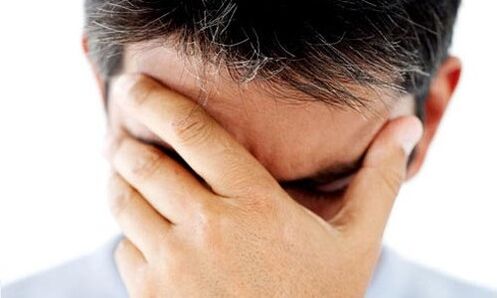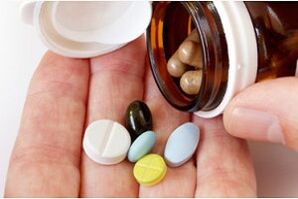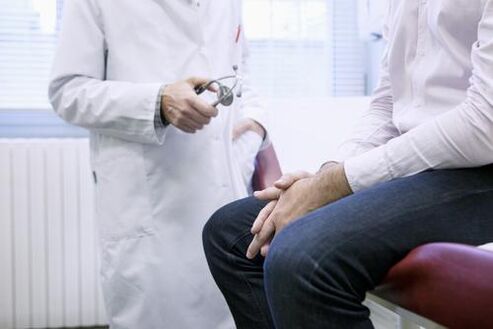Fighting prostatitis is a complex and lengthy process that does not allow self-treatment. Since this disease causes lesions of male reproductive function and serious malfunction of the work of other organs and systems, all measures to diagnose and determine the necessary treatment strategies should be carried out only by urologists. How to treat prostatitis, make the disease subside as soon as possible, what is the complexity of the treatment measures?

Diagnosis of Prostatitis
Determining whether a patient has prostatitis is usually not difficult for a urologist, and the main goal of a diagnostic procedure is to determine the cause and form of the disease. Certain types of tests may cause patient discomfort or pain, but the attending physician needs to go through certain stages of clinical diagnosis in order to gather useful information:
- Initial digital rectal examination and collection of prostate secretions for analysis to determine the nature of the disease (non-bacterial or infectious forms of prostatitis). If infectious agents are found in biological material, susceptibility testing of pathogenic flora to antibiotics is performed to optimize the complexity of subsequent treatment measures.
- Transabdominal or transrectal ultrasonography. It is prescribed as needed to characterize the state of the prostate. Transabdominal ultrasound is performed through the anterior abdominal wall without discomfort to the patient. However, a transrectal examination of the prostate (through the rectum), while moderately painful, is more informative because it allows you to determine not only the parameters of the gland, but also structural changes.
- Blood test for PSA. An excess of normal levels of prostate-specific antigen (4 ng/ml) in the blood may indicate a pathological process in the prostate. The determination of the PSA index should be carried out not only during the diagnosis of prostatitis, but also during the treatment of the disease to evaluate the effectiveness of the treatment.
The main treatment components and treatment methods of prostatitis
Acute prostatitis and exacerbations of chronic forms of the disease are treated according to a similar regimen. Correctly chosen, rational treatment assumes full recovery of the patient in the first case and leads to cure or long-term remission of his disease in the second. Only a urologist can decide how to treat prostatitis without compromising the patient's health, and the patient's role in this process lies in strictly adhering to all the specialist's prescriptions, with the means and methods used for maximum effect.
medical treatement

Medication is the basis for any therapeutic effect on prostate inflammation. Urologists choose necessary medications based on data from laboratory tests and other preliminary studies. The focus of drug therapy includes:
- reduce the pain level of the patient;
- normalization of blood circulation in the prostate and adjacent organs;
- Locating and destroying the source of infection;
- Eliminate inflammation and congestion of the prostate;
- Stabilize the patient's immunity, sexual performance, and general health
The best effects of medication are achieved with a combination of antibiotics, pain relievers, anti-inflammatory and hormonal medications, antidepressants, microenemas, and suppositories in the health plan.
topical treatment
Localized restorative effects on the prostate and its inflamed areas are achieved by using various types of physical therapy in the treatment plan:
- Ultrasonic electrophoresis;
- Transrectal microwave hyperthermia;
- dynamic electrophoresis;
- Laser Treatment;
- Prostate massage.
It should be noted that massage is relatively painful and is the most effective way to fight prostatitis. As a result of these procedures, the stagnant secretions of the prostate are removed, which helps improve blood circulation to the affected tissues and increases the effectiveness of the drugs the patient uses. Prescribe massage to patients during remission or resolution of acute symptoms of disease. During exacerbations of prostatitis, doctors exclude surgeries from the list of treatment options because they can cause the infection to spread.
Phytotherapy
Botanical therapy is prescribed for patients with prostatitis as part of complex treatment. Since herbal supplements are harmless to the body and have a low incidence of side effects, herbal supplements can be used for a long time. Phytotherapy can be used internally and/or externally in the form of juices, decoctions or infusions of St. John's wort, ginseng, calamus, periwinkle, burdock, nettle and other medicinal plants. In chronic forms of prostatitis, doctors may prescribe magnetic, sonic, or electrophoretic botanicals.
Medications for Prostatitis
A patient's course of drug use is prescribed by their doctor on an individual basis. Antibiotic programs are designed with the following specific criteria in mind:
- form of disease;
- The type of pathogen and the antibacterial activity of the drug;
- The ability of the drug to penetrate into the prostate tissue;
- no contraindications to taking the drug;
- method of administration;
- possible side effects
Antibacterial drugs are mainly divided into three categories according to their efficacy indicators in the treatment of chronic and acute prostatitis:
- Fluoroquinolones. This group of drugs has a wide range of action and has the ability to accumulate in high concentrations in the prostate tissue; at the same time, the resistance of the pathogenic bacteria to the active agent has not been formed. The "disadvantage" of fluoroquinolones is their possible negative effects on the central nervous system and the possibility of allergic reactions in patients.
- tetracycline. These drugs are most effective against atypical pathogens, but are less active against Escherichia coli and Staphylococcus, and completely ineffective against Pseudomonas aeruginosa.
- Macrolides. Macrolide preparations are easy to infiltrate and actively accumulate in glandular tissues, but have low toxicity, effectively kill gram-positive bacteria, and have no inhibitory effect on gram-negative bacteria.
Patients diagnosed with prostatitis should visit their doctor regularly on the first day of taking prescribed antibiotics. Such measures are necessary for urologists to track the effectiveness of antibiotics. If, after three days of treatment, the specialist does not notice a significant improvement in the patient's condition, he will switch the main medication. When prescribing antibiotics, doctors must take into account the patient's experience with the same drug to rule out re-prescribing the same group of drugs.
In addition to antibiotics and pain relievers, people with prostatitis may receive hormone therapy and/or alpha-blockers:
- Hormone therapy. The condition and function of the prostate is directly dependent on the levels of androgens and estrogens in a man's body. Using hormonal drugs in the treatment of prostatitis allows you to shift the balance of "female" and "male" hormones in a given direction. Since such drugs help to reduce the glandular tissue of the prostate, we can talk about the indirect role of anti-androgens in the recovery of patients with prostatitis.
- Alpha blockers. The intake of such funds refers to the method of pathogenic treatment; its purpose is to relieve the general symptoms of prostate inflammation. Particularly effective is the use of alpha blockers to treat urination problems. Due to the removal of spasticity of the sphincter, ureteral wall, bladder smooth muscle, and the prostate itself, stagnation or reflux of prostate secretions is prevented and edema is removed from the inflamed organ.
Regardless of the purpose and specific circumstances of the medication, taking any medication should be done exactly as prescribed and under the doctor's control. Self-medication may lead to complications of the disease or make subsequent treatments clinically ineffective.
Immune correction is key to treatment success
The entire medical procedure for chronic or acute prostatitis must be accompanied by immunocorrective measures (regular visits to an immunologist, normalization of lifestyle, administration of vitamins, immunomodulators, etc. ). The hyperimmune state of the body contributes to the rapid recovery of the patient or the prolongation of the remission period of the chronic form of the disease.

Prompt medical attention at the onset of symptoms characteristic of the disease, strict adherence to medical advice in the event of a diagnosis of prostatitis, prevention of recurrence of existing disease and a clear refusal to self-medicate for professional intervention by a urologist can allow you to avoid long-term treatment and severe diseaseAdverse consequences.






























